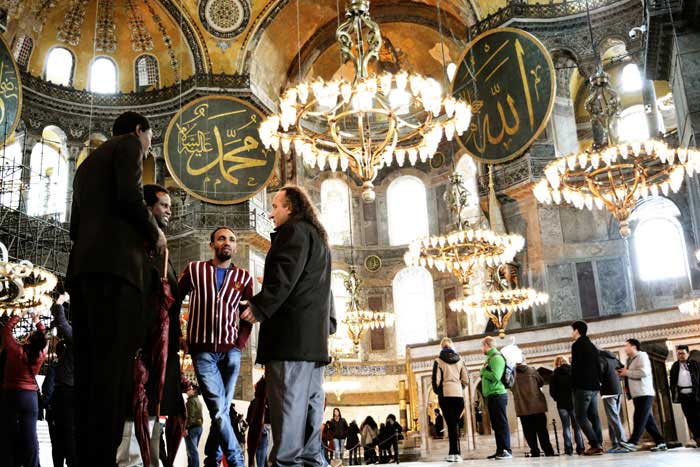Orthodox: May we never say or think concerning the eternal nature of the Trinity, equal in essence, that, because the economy was completed, it receives a doubled number becoming two natures. But the nature of the Trinity remains as it is in its unity, not receiving the doubled number of another nature.
Nestorian: Just as the nature of the Trinity, equal in essence, is not doubled in our mind and understanding when it received the additional number of two natures on account of the mystery of the dispensation of Christ, who is perfect God and perfect man at the same time, not the same [in nature] although one [in person]. In the same way, let us hold to this understanding and be confirmed by it that the Trinity is not made four, and does not receive the addition of number of another hypostasis by the economy of the person of Christ, who is two natures and two hypostases. But the Trinity subsists in the equality of its essence, and it is eternal and everlasting. Also the mystery of the economy remains and exists as [Christ] does. Two natures and two hypostases are united inseparably, continuously, and forever in the unity of person in the womb of the Virgin from the beginning of the formation of the body by the anointing and strength of the Holy Spirit.
Apart from the Trinity
Orthodox: Where therefore do you believe remains and is the other hypostasis of Christ? Is it apart from the Trinity or is it among the hypostases of the Trinity?
Nestorian: Everywhere that you think that there is the human nature of Christ, there is the human hypostasis. We believe that Christ in His human nature is in heaven, as was announced to us and we learned from the holy angels by the blessed Apostles, “This Jesus who is ascended from you to heaven, thus shall He come as you saw Him go up to heaven.” [Acts 1:11] Thus we say concerning the form in which Christ is now on account of His corporeality. But concerning the other thing which you asked, whether Christ is outside of the Trinity or within the Trinity, thus we believe that there is no place outside of the Trinity, so that one could say that the nature and hypostasis of the humanity of Christ is there. Also, it is not within the Trinity as in a place, but it is not in the Trinity as a hypostasis is in a nature. For the flesh of Christ is not of the same nature as the Father and the Holy Spirit, but it is believed that it is with the Word of God only by conjunction in an inseparable unity.
Read More about Natural hypostasis of the Word







